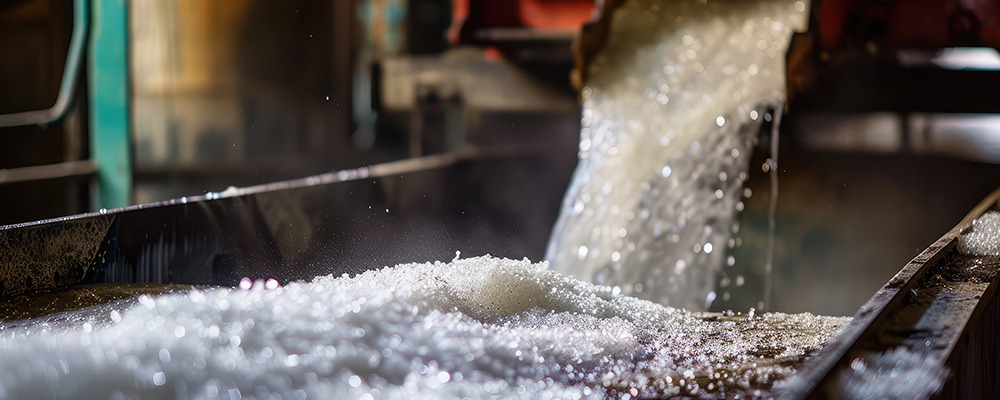The sugar industry is one of the largest and most resource-intensive sectors in global food production. From the fields where sugarcane or sugar beet is cultivated to the factories where it is refined, the industry consumes vast amounts of water, energy, and chemicals. Moreover, traditional sugar processing methods often lead to significant environmental challenges, including water pollution, carbon emissions, and excessive waste generation.
However, in recent years, the industry has been increasingly turning to biotechnology to address these issues. Among the most promising advancements is the use of enzymes—biological catalysts that facilitate chemical reactions under milder conditions, reducing the need for harsh chemicals and excessive energy consumption. Enzymes are proving to be a game-changer for the sugar industry, making production more sustainable, efficient, and environmentally friendly.
Enzymes in Sugar Production: A Natural and Sustainable Solution
Enzymes have long been used in various food processing industries, but their application in sugar manufacturing is relatively recent. Traditionally, sugar production has relied on mechanical, chemical, and thermal processes to extract and refine sugar. These methods, while effective, often require high energy inputs, generate waste by-products, and involve the use of chemicals that can harm the environment.
By introducing enzymes into the sugar production process, manufacturers can reduce environmental impact, increase yield, and improve overall efficiency. Enzymes work under milder conditions, replacing the need for extreme temperatures and aggressive chemical treatments. This not only lowers energy consumption but also minimises chemical waste, making sugar processing greener and more sustainable.
Optimising Sugar Extraction

One of the primary uses of enzymes in the sugar industry is in the extraction phase. Sugarcane and sugar beet contain complex carbohydrates and fibrous materials that make sugar extraction challenging. Traditionally, factories rely on mechanical crushing and chemical treatments to break down these materials. However, these methods can leave behind a significant amount of residual sugar, leading to inefficiencies.
Enzymes such as cellulases, hemicellulases, and pectinases help break down plant cell walls, releasing more sugar from the raw material. This results in higher sugar yield, reduced raw material wastage, and a more efficient extraction process. Furthermore, enzymatic extraction allows for the use of lower temperatures, leading to energy savings and reduced greenhouse gas emissions.
Another key benefit is that enzymes enable better juice clarification, reducing the need for traditional flocculants and clarifying agents, many of which can have negative environmental effects. By making the filtration and clarification process more efficient, enzymes help manufacturers achieve cleaner sugar juice with fewer impurities, ultimately enhancing the quality of the final product.
Reducing Energy Consumption
The sugar industry is notorious for its high energy demands, especially in evaporation and crystallisation processes. Sugar juice extracted from cane or beet must be concentrated before crystallisation, a process that traditionally requires intense heating to remove excess water. This leads to significant fuel consumption and carbon emissions.
Enzymes can streamline the purification and concentration process, reducing the need for excessive heating. Certain amylase enzymes, for example, help break down starch impurities present in sugarcane juice. These starches can cause issues during crystallisation, leading to inefficiencies. By using enzymes to remove these impurities early in the process, manufacturers can achieve faster and more uniform crystallisation, reducing energy consumption and improving overall productivity.
Moreover, enzymes aid in reducing viscosity in sugar juice, allowing for faster filtration and evaporation. Lower viscosity means that the juice requires less mechanical and thermal processing, contributing to significant energy savings throughout production.
Minimising Chemical Usage and Waste Generation

A major concern in sugar production is the use of chemicals for refining and decolourisation. Many sugar factories use sulphur dioxide and other bleaching agents to produce white sugar. However, these chemicals can lead to environmental pollution, as well as health concerns for workers and consumers.
Enzymes such as glucose oxidase and peroxidase offer a natural alternative for sugar decolourisation and purification. These enzymes break down impurities and unwanted pigments without the need for harsh chemicals. This not only leads to a cleaner and safer production process but also ensures that the final sugar product is free from residual chemicals.
Additionally, enzymes help reduce solid waste generation. Sugar factories produce large amounts of bagasse (fibrous sugarcane residue) and press mud (filter cake waste). By using enzymes to extract additional sugars from these by-products, manufacturers can minimise waste and even find alternative uses for them, such as in biofuel production or animal feed.
Enzymes in By-product Utilisation: A Step Towards Circular Economy
Beyond improving the efficiency of sugar extraction, enzymes are also playing a crucial role in by-product valorisation. The sugar industry generates a vast amount of residual biomass, much of which can be repurposed rather than discarded.
For example, sugarcane bagasse and molasses can be used for bioethanol production, an important renewable fuel source. Enzymes such as cellulases and xylanases can break down bagasse into fermentable sugars, which can then be converted into ethanol. This not only reduces waste but also contributes to the development of sustainable biofuels, decreasing reliance on fossil fuels.
Similarly, enzyme-assisted processes can improve the quality and efficiency of molasses fermentation, which is used in the production of alcohol, yeast, and other valuable products. By harnessing enzyme technology, the sugar industry can move towards a circular economy, where waste is minimised, and every part of the raw material is utilised effectively.
A Greener Future for the Sugar Industry
The integration of enzymes in sugar manufacturing is transforming the industry, making it more sustainable, efficient, and eco-friendly. From optimising sugar extraction to reducing energy consumption and minimising chemical use, enzymes offer a natural and effective solution to many of the industry’s longstanding challenges.
By replacing harsh chemical processes with biotechnological advancements, the sugar industry can significantly lower its carbon footprint, improve resource efficiency, and create safer, more sustainable production methods. With growing environmental concerns and increasing demand for greener food production practices, enzyme-based solutions are set to play an even bigger role in shaping the future of sugar manufacturing.
At Biolaxi Enzymes, we are committed to driving this transformation by providing high-quality, customised enzyme solutions for the sugar industry. With our scientific expertise, advanced enzyme formulations, and a strong focus on sustainability, we help manufacturers achieve greater efficiency, reduced waste, and enhanced product quality. As the industry continues to evolve, we remain dedicated to delivering innovative enzyme solutions that support a greener and more sustainable future for sugar production.




